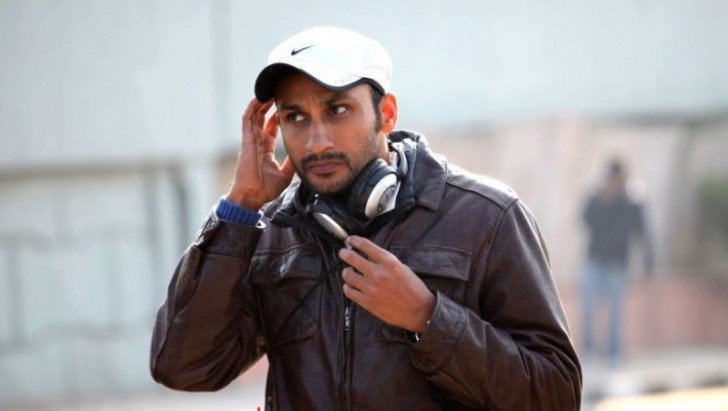Filmworld
Filmmakers in India at mercy of moral police: Indian American filmmaker

New Delhi, April 25 He wove a film, "Unfreedom", with lovemaking scenes, depicting lesbian relationships, Islamophobia and religious fundamentalism, and it was banned by the Indian censor board in 2015. Indian-American filmmaker Raj Amit Kumar is appalled by the lack of freedom filmmakers have in India and wonders how much self-censorship they have to do in the face of the industry's "moral police".
The censor board's reason for keeping "Unfreedom" away from the big screen was the fear that the film would "ignite unnatural passions and incite rapes and communal violence in India". However, now the movie has an avenue to reach audiences on online streaming giant Netflix.
When the Central Board of Film Certification (CBFC), then led by Pahlaj Nihalani, banned the film, the first thought that came to Kumar's mind was: "How will I make my cinema in India?"
"It hit me hard: How much of self-censorship Indian filmmakers must be involved in so they do not have to face this. We do not even have a basic human right to freedom of speech and expression in India when it comes to cinema!
"Is that how we should keep making films in India -- that we should first think what the censor board will approve and our films should be limited to those boundaries? It became very clear how subservient Indian filmmakers have been to the moral police of Indian cinema for seven decades," he added.
Last year, the film was under review by CBFC, which wanted Kumar to cut crucial elements from the movie in order to be shown to the Indian public.
Later, Kumar appealed to the Film Certification Appellate Tribunal (FCAT), which too banned the film.
A campaign was also run by the makers for a year during which they did around 100 screenings of the film in India and in the US, among other countries. Following this, the film was released internationally by Netflix.
After Nihalani was replaced by Prasoon Joshi as CBFC Chairman, did Kumar try to get a censor certificate again?
"No, I did not," said Kumar.
He believes that the idea that a new jury or a new chair will bring any change to censorship in India is "only laughable".
"It is ridiculous to frame censorship in India like that and hope for 'improvements' (when people in the board change)... It is all ridiculous and a sham that is against our basic human right of freedom of expression," he said.
Kumar believes that, at this point, the very existence of the censor board needs to be addressed.
"Not that the people in it should be changed, but the censor board (as an) institution needs to be abolished and thrown in the garbage. How can you expect someone to be put in the job of censoring, and them not doing that job? The existence of that job itself is wrong, no matter who does it and at what levels of leniency," he added.
Can platforms like Netflix, which are devoid of censorship, be called a boon for the cinema lover?
"By boon, if you simply mean helpful, then yes. Something is better than nothing. But by boon, if you mean a Godsend, a blessing, an alternative, then no," said Kumar.
"Regardless of people being able to see it online, the key question is still that we should not see anything as an alternative to freedom of expression. It's the most basic human right that we need to have, and we should not divert our attention from that," he added.
"You can't come and say, hey look, you have freedom of expression on Netflix but not in cinema theatres".
Besides the critically lauded actor Adil Hussain, the film also features veteran actor Victor Bannerjee, Bhavani Lee, Preeti Gupta and Bhanu Uday.

























